|
My Personal Family Empathy Circle Story
Healing a Conflict in My Family
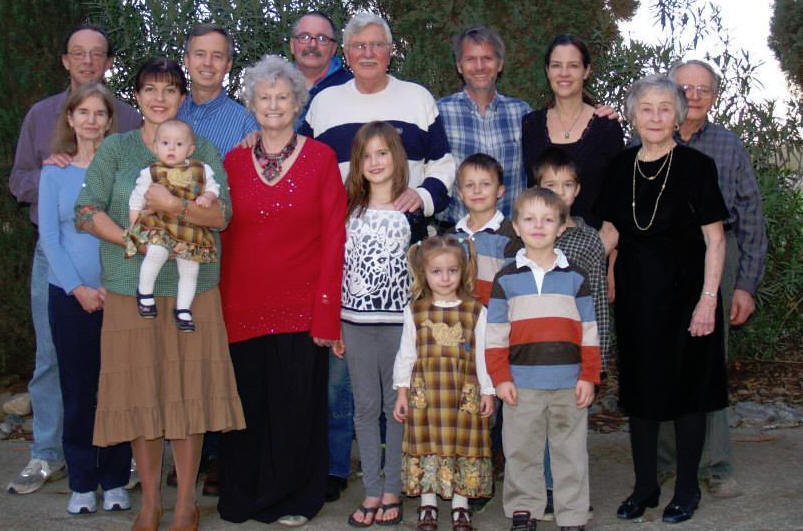
Several year ago at Christmas we were having a family gathering and a
conflict erupted between my sister-in-law and mother. The initiating act
was that my sister-in-law had bought some gifts for my parents to give
to the young children. The children had found the gifts hidden behind a
chair and that got my sister-in-law angry at the children for getting
into and opening the gifts before the official gift giving time. Also,
she was angry with my mother for having put the gifts behind the chair
where the kids could find them. This turned into an extremely heated
argument between my mother and sister-in-law. There was finger pointing,
heated words, anger, upset, comments like "I won't let you talk to me
that way!", etc. It looked like the whole evening might blow up with
family members going home angry.
I thought, " I'm wanting to create a culture of empathy. I need to step
into this in an empathic way." The very thought of stepping into this
conflict sent ice cycles through the core of my being. It was actually
quite scary, but I went over and started empathizing with my
sister-in-law by listening to what she said and reflecting back what I
was hearing. As mentioned, empathic listening is one tool that can help
address conflict and facilitate connection.
For example, I said, "I'm hearing you are upset that the kids got into
the gifts, is that what you're saying?"
I kept empathizing with her until she came to a point where she felt
heard.
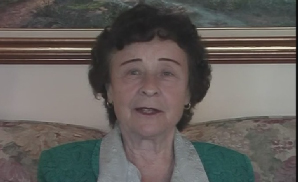
Mother, Jenny
Rutsch (video)
Then I did the same with my mother. "I'm hearing you say that you don't
want to be talked at in this angry and demeaning way, is that correct?"
I listened for a few minutes until she felt she was heard and then I
went back and forth between the two of them in this fashion for maybe 15
minutes.
After each of them was heard by me, the tension between the two of them
went down a few notches. Then I said, "Would the two of you now be
willing to talk directly with each other? One person can talk and the
other can reflect what they are hearing until the speaker is fully
heard. Then it will be the listeners turn to speak and the other person
to reflect. You will each get to be fully heard to your satisfaction."
They agreed and they started going back and forth. My mother would say
something that upset my sister-in-law and she would want to jump in with
an immediate reply. I'd then step in and say, "You'll have a chance to
speak and be fully heard as soon as Jenny is fully heard. Would you just
let her know what you heard her say? So it took some doing, but I was
able keep them on track to keep this empathic listening process going.
"Suddenly we were in
a full family empathy circle"
The rest of the family had been on the periphery watching this and they
started to step into the dialog. Suddenly we were in a full family
'empathy circle' with me, my mother, sister-in-law, brother, father and
my girlfriend all engaging in this empathic back and forth dialog. It
was an effort, but I was able to facilitate this empathic listening with
one person choosing who they would speak to and that person reflecting
the emotions they were hearing until the speaker felt they had expressed
them self and had been understood.
All kinds of emotions started coming up and we went deeper into the
underlying emotional issues for the next hour. A major turning point
came up when my sister-in-law expressed that she didn't feel she was
fully accepted into the family because of various reasons, including
coming from a poorer Russian family background. She didn't have a
feeling of acceptance and belonging. At that point my father, who is
generally a fairly reserved person, stepped up and shared how he felt
she had contributed a lot to the family, how money wasn't an issue with
him since he had come to America as a poor refugee, how he valued her
presence and that he loved her. They both got up in the middle of the
room and had this big hug.

Father, Gerhard
Rutsch (video)
The dialog then continued for a while longer and both my mother and
sister-in-law got up and had big hugs. At the end, I have this memory of
both of them sitting on the sofa together, snuggled up and 'melted' into
each other and holding hands. For me this event is an example of
emotional or mirrored empathy. I was advocating for a culture of
empathy, which is to create an environment of mutual empathic connection
and understanding among everyone.
Warmly,
Edwin
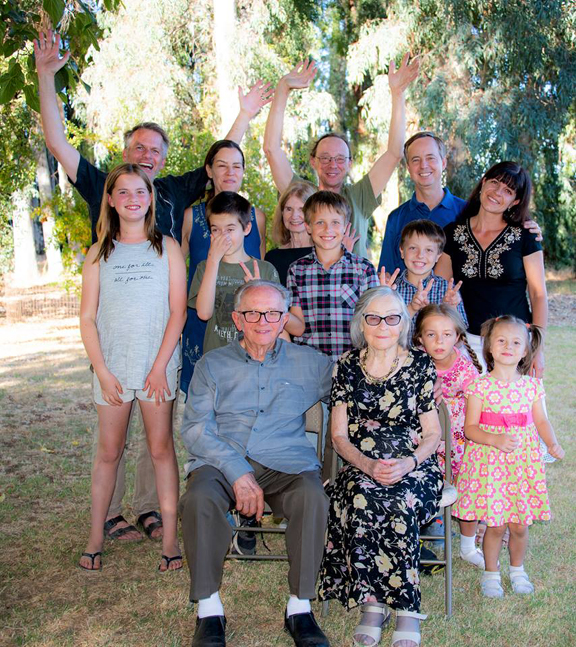
Email
from my sister-in-law after the
Circle at Christmas
2012
Dear Edwin,
... I
wanted to say that I really appreciate the empathy circle that you
conducted on Christmas. It was for the first time
since I joined the family 8 years ago that we were able to talk and to
listen to each other. It was very meaningful to be heard and empathized
with, as well as to hear for the first time how others feel. I don't
think I ever felt heard by your Mom before that night, because she has a
tendency to interrupt and talk only about her life. Thank you for
helping her listen and reflect. I think that evening brought some
healing to our family relationships. While I am not proud of getting
angry at Mom and prompting you to conduct an empathy circle, I am very
thankful that you and Joan helped the evening end in such a positive
way.
... That
night as we drove home, C. and I talked about the empathy circle we
experienced. C. said he thought you are very good at mediating and
helping others practice reflective listening. Since then, any time we
have a misunderstanding, we try to sit down and have reflective
listening. If I feel myself getting frustrated with C., instead of just
talking angrily I tell him, "I think I need an empathy circle," and it
really helps us. It helps me de-escalate because I know I will be heard
without having to yell and be angry, and it helps him because he knows
that if he is listening and reflecting, I will speak calmly and
respectfully. So we both win, and our communication is improving.
While
my parents were visiting here, C. and I talked with my Mom about a
couple of things that have stood between us for years, causing both of
us a lot of pain. C. took charge as our mediator and helped us talk,
listen, and reflect. Of course, he does not have as much experience as
you in doing empathy circles, so it wasn't as smooth, especially
initially, but the presence of a mediator who guided us was very helpful
nevertheless.
My Mom and I understood that we love each other and do not
want to hurt each other. We agreed that we both want to have a
relationship, but we need to learn to communicate in a new, positive and
constructive way in order to enjoy the relationship. I think we achieved
empathy, and it is gradually bringing healing to our relationship. Empathy can be contagious, don't you think?
"Empathy can be contagious,
don't you think?"
I want to say I really appreciate you reaching out to K. and sharing
with her how empathy can help resolve conflicts and bring people closer.
It means a lot to me that you want K. and I to reconcile and have a
better relationship. Thank you for desiring to see healing,
understanding, and closeness between your family members...
With love,
V.
Follow-Up Empathic Actions
Restorative Empathy Circle
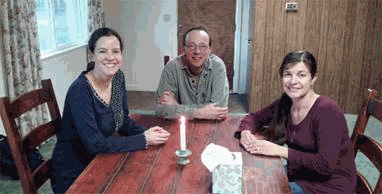
This event had some follow up empathic actions as well. A couple of
months later, my sister and my sister-in-law, who had an underlying
conflict for the past 8 years were willing to take part in a Restorative
Empathy Circle that I facilitated. This is a more formalized empathic
connection building process for addressing conflict. After four hours
they were able to effectively address emotional issues they had been
dealing with for these many years.
Family Empathy Circles
This then led to a series of other family empathy circles that we have
done since to address family issues, conflict and have general positive
dialogues.
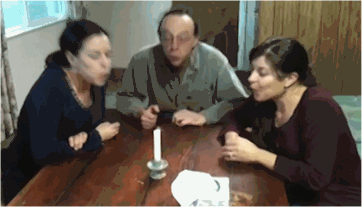
At the end of a four hour Restorative Empathy Circle
with my sister
and sister-in-law.
Closing the circle by blowing our intention
out into the world.
Down on the Orchard
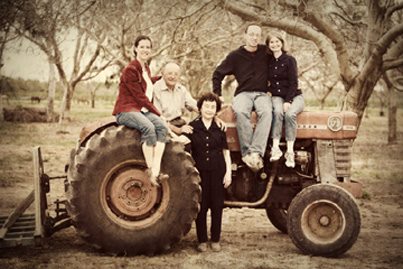
|











